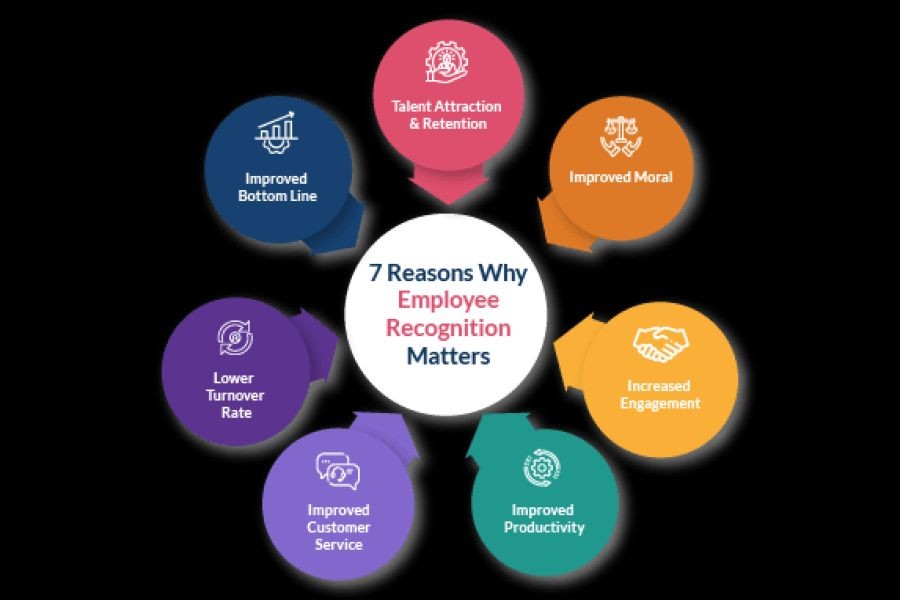In the dynamic landscape of New Zealand's business environment, small businesses constantly seek innovative strategies to attract and retain customers. Given the increasing competition and the ever-evolving market dynamics, lead magnets have emerged as a pivotal tool for capturing potential customers' attention. But what exactly makes a lead magnet effective in the Kiwi context, and how can small businesses tailor these strategies to maximize their impact? This article delves into the most effective lead magnet ideas for small businesses in New Zealand, backed by data, expert insights, and real-world applications.
Understanding Lead Magnets: A Comprehensive Overview
A lead magnet is an incentive that businesses offer potential customers in exchange for their contact information. It's a strategic way to build a database of prospective clients while providing them with something of value. Common examples include free trials, downloadable guides, and exclusive discounts. In New Zealand, where the digital landscape is rapidly expanding, leveraging lead magnets tailored to local consumer behavior can significantly enhance a business's customer acquisition strategy.
The New Zealand Context: Why Lead Magnets Matter
According to the Ministry of Business, Innovation and Employment (MBIE), over 80% of Kiwi consumers engage with businesses online, a statistic that underscores the importance of digital lead generation strategies. With the Reserve Bank of New Zealand projecting a steady growth in e-commerce and digital interactions, small businesses must optimize their digital presence to capture this growing audience effectively.
Top Lead Magnet Ideas for Small Businesses in NZ
- Exclusive E-books and Guides: Offering informational content that addresses specific pain points of your target audience can position your business as an authority in your industry. For instance, a Wellington-based digital marketing agency might create an e-book on "10 Proven SEO Strategies for New Zealand Businesses."
- Free Trials and Samples: Allowing potential customers to experience your product or service firsthand can significantly increase conversion rates. New Zealand's tech startups often use this approach by offering limited-time free access to their software platforms.
- Webinars and Online Workshops: Hosting live events can engage audiences and provide valuable insights into industry trends and solutions. For example, a Christchurch-based financial advisory firm might conduct a webinar on "Investment Strategies Amidst Economic Uncertainty in NZ."
- Discounts and Coupons: Offering financial incentives like discounts or coupons can encourage potential customers to try your products. A study by Stats NZ found that 65% of Kiwi consumers are more likely to purchase when offered a discount.
- Interactive Quizzes: Engaging potential customers with quizzes that offer personalized results can drive higher engagement. For instance, a fitness center could create a quiz titled "What’s Your Ideal Workout Plan?"
Case Study: Xero's Lead Magnet Success
Problem: Xero, a leading accounting software company, wanted to increase its user base among small businesses in New Zealand. The challenge was to convert website visitors into paying customers.
Action: Xero introduced a 30-day free trial of their software, allowing potential customers to experience the platform's full features without any financial commitment. This strategy was coupled with targeted email campaigns providing users with tips and best practices during the trial period.
Result: Xero saw a 40% increase in conversion rates from trial users to paying customers within six months. The initiative also led to a 30% rise in user engagement, as measured by login frequency and feature utilization.
Takeaway: Offering a free trial can significantly boost user adoption and engagement. For Kiwi businesses, aligning lead magnet strategies with the specific needs and behaviors of local consumers is crucial for success.
Data-Driven Insights: The Power of Personalization
Research from Deloitte indicates that personalized marketing can boost conversion rates by over 20%. In the context of lead magnets, personalization involves crafting tailored content or offers that resonate with the individual preferences and behaviors of potential customers. For small businesses in New Zealand, leveraging data analytics tools to segment and target audiences effectively can lead to substantial gains in lead conversion.
Pros and Cons of Popular Lead Magnet Strategies
Pros:
- Higher Engagement: Lead magnets can increase customer interaction with your brand, leading to higher levels of engagement.
- Cost-Effective: Digital lead magnets such as e-books or webinars often require minimal investment compared to traditional marketing methods.
- Scalable: Once created, lead magnets can be distributed to a broader audience without significant additional costs.
Cons:
- Initial Setup Time: Developing quality content for lead magnets can be time-consuming.
- Quality Over Quantity: Poorly executed lead magnets may damage your brand's reputation rather than enhance it.
- Privacy Concerns: Collecting personal data requires compliance with privacy laws, such as the New Zealand Privacy Act.
Common Myths & Mistakes in Lead Magnet Implementation
Myth: "Any free offer will attract leads."
Reality: The key is to provide value. A generic freebie may not resonate with your audience. Tailor your lead magnet to meet the specific needs and interests of your target market.
Myth: "Lead magnets are a one-time setup."
Reality: Regular updates and optimizations based on performance analytics are crucial to maintaining effectiveness.
Future Trends in Lead Magnets for NZ Businesses
As technology continues to evolve, the future of lead magnets in New Zealand will likely see increased integration of AI and machine learning. These technologies can enhance personalization and engagement by predicting consumer behavior and tailoring offers accordingly. According to a 2024 report from NZTech, businesses that adopt AI-driven marketing strategies could see a 35% increase in lead efficiency by 2028.
Conclusion: Embracing Innovation and Adaptation
For small businesses in New Zealand, the effective use of lead magnets is not just a marketing strategy—it's a pathway to sustained growth and customer loyalty. By understanding local market dynamics, leveraging data for personalization, and staying ahead of technological trends, businesses can transform potential leads into loyal customers. As you consider implementing lead magnets, focus on providing genuine value and continuously adapt your strategies to meet the ever-changing needs of your audience.
Call to Action
What lead magnet strategies have you found most effective for your business? Share your experiences and insights in the comments below!
Related Search Queries
- Best lead magnet ideas for small businesses
- How to create effective lead magnets
- Lead magnet strategies for New Zealand businesses
- Personalized marketing strategies
- Future trends in digital marketing
People Also Ask
- How can small businesses in New Zealand benefit from lead magnets?
Lead magnets help small businesses in NZ attract potential customers by offering valuable content or incentives, leading to increased engagement and conversion rates.
- What are common mistakes when implementing lead magnets?
A common mistake is failing to tailor the lead magnet to the target audience, which can result in low engagement and conversion rates.
- What future trends should NZ businesses watch for in lead magnet strategies?
Businesses should watch for increased use of AI and machine learning to enhance personalization and predict consumer behavior for more effective lead generation.



































JustinMahn
6 months ago